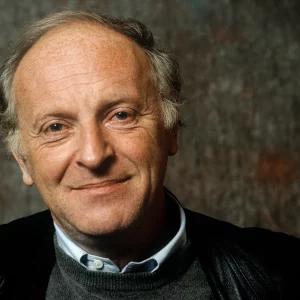
Many words–even simple ones–hold multiple meanings. Add connotative undertones to their pedigree and they grow even more fascinating. The word “indifferent” is such a word. Seemingly simple, there’s more to it than meets the eye. That’s one reason why I chose to name my first book The Indifferent World and placed the word itself in many of the collection’s poems.
First, a more conventional look at the word’s meaning, as seen through a beautiful poem written and translated (with the help of Robert Haas) by Czeslaw Milosz. This poem appeared in my copy of All of Us: The Collected Poems by Raymond Carver. It gains momentum and strength as you read it–a trait I admire in poems.
Return to Kraków in 1880
Czeslaw Milosz
So I returned here from the big capitals,
To a town in a narrow valley under the cathedral hill
With royal tombs. To a square under the tower
And the shrill trumpet sounding noon, breaking
Its note in half because of the Tartar arrow
Has once again struck the trumpeter.
And pigeons. And the garish kerchiefs of women selling flowers.
And groups chattering under the Gothic portico of the church.
My trunk of books arrived, this time for good.
What I know of my laborious life: it was lived.
Faces are paler in memory than on daguerreotypes.
I don’t need to write memos and letters every morning.
Others will take over, always with the same hope,
The one we know is senseless and devote our lives to.
My country will remain what it is, the backyard of empires,
Nursing its humiliation with provincial daydreams.
I leave for a morning walk tapping with my cane:
The places of old people are taken by new old people
And where the girls once strolled in their rustling skirts,
New ones are strolling, proud of their beauty.
And children trundle hoops for more than half a century.
In a basement a cobbler looks up from his bench,
A hunchback passes by with his inner lament,
Then a fashionable lady, a fat image of the deadly sins.
So the Earth endures, in every petty matter
And in the lives of men, irreversible.
And it seems a relief. To win? To lose?
What for, if the world will forget us anyway.





